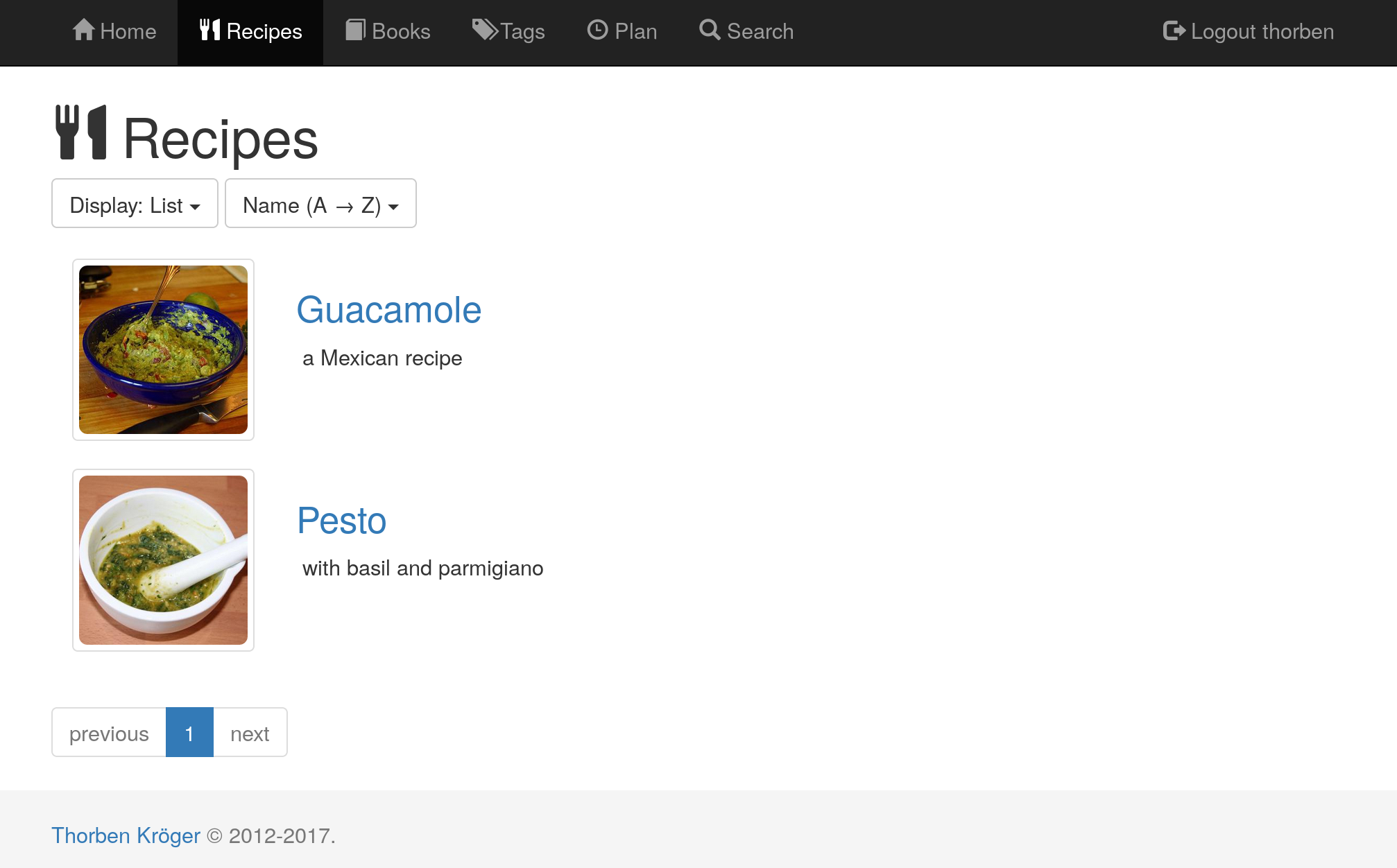Note: This project is quite old and was a way for me to learn django, javascript and web-development in general. I've recently clened it up very slightly, squashed the history and pushed it to github.
This is a django-based web application for managing your recipe collection.
Most importantly, gourmet stores your recipes as simple text files.
A MySQL database is only used to cache the data, but never as the primary
means of storing your data. Edits to your recipe data are written directly
back to the text files (as well as cached to the database).
This way, you can keep all your recipes in a git repository. The web application will edit and commit the source text files (such as when changing recipe tags).
- Text-based file format:
A recipe is defined in a simple, human-readable text file
(name, source, tags, ingredients, method)- human-readable ingredients can be written like
"250 g Spaghetti"
and quantity, unit and ingredient are parsed from it - you can define a hierarchy for ingredients (e.g. "carrots -> vegetables")
- human-readable ingredients can be written like
- recipes can be linked to their originating source (such as a book, magazine or a website). The user can then list all recipes from a certain source.
- tags (also editable via the web interface!)
- schedule a number of recipes for the week;
gourmetwill generate a shopping list for you - find recipes by ingredient
On Ubuntu 17.04, first install some dependencies:
sudo apt install mysql-server libmysqlclient-dev
We'll first create a virtualenv python environment, into which
we install all necessary dependencies (including Django)
virtualenv -p /usr/bin/python3.5 .venv
source .venv/bin/activate
pip install -r requirements.txtCreate the MySQL database for the application:
mysql -u root -p < ./scripts/create_db_user.sqlNext, configure cookingsite/settings.py.
Set the following important variables:
RECIPES_COLLECTION_PREFIX: path to recipe collection in textual format (for an example, see the repository https://github.com/thorbenk/example_gourmet_recipes)DATABASE: how to connect to your database
Now, initialize the database:
python manage.py makemigrations
python manage.py migrateThen, we can populate the database by reading in all recipes in
RECIPES_COLLECTION_PREFIX:
./convert_files2database.pyThen, run
python manage.py runserverand then open http://127.0.0.1:8000/
